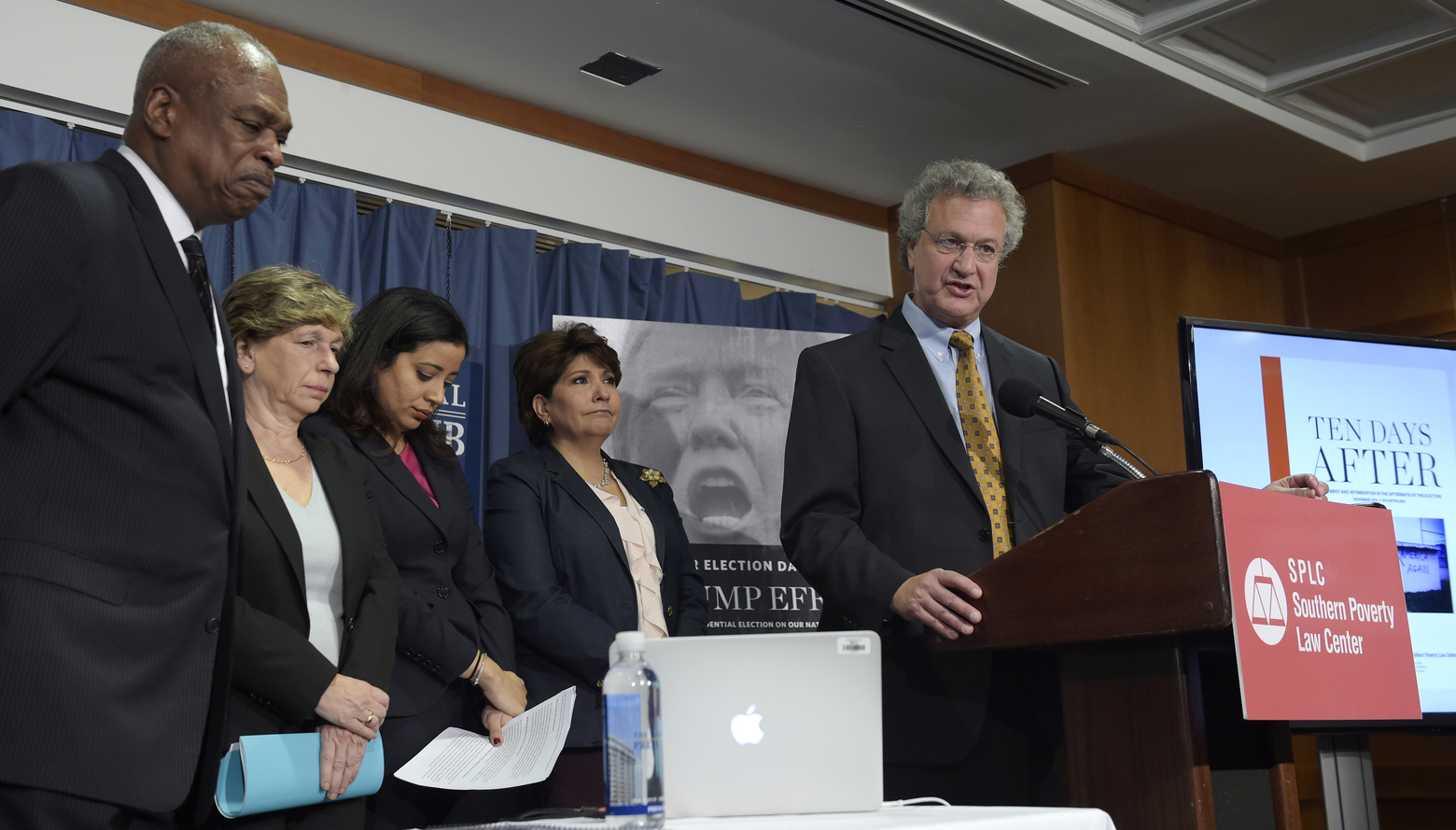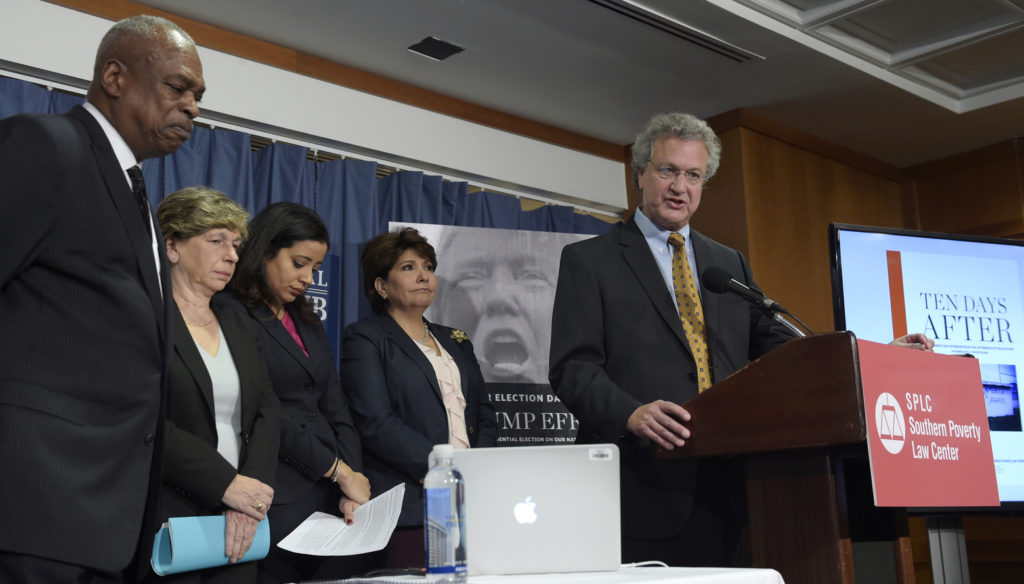
By Jesse J. Holland
Associated Press

WASHINGTON (AP) – Civil rights groups called for President-elect Donald Trump to forcefully and publicly denounce racism and bigotry, pointing to more than 860 bias-related incidents recorded in the 10 days following his Nov. 8 victory.
After running a divisive campaign, Trump promised – after winning – to be a president for all Americans, said representatives of the Southern Poverty Law Center, the Leadership Conference on Civil and Human Rights, the National Council of La Raza and the American Federation of Teachers.
Trump needs to follow through on that pledge and publicly denounce the bias- and hate-related incidents that popped up around the country, said Richard Cohen, SPLC’s president.
“One of our great, great hopes at the Southern Poverty Law Center is that Mr. Trump mightily disappoints the white supremacists, the white nationalists who are celebrating his victory now,” Cohen said.
In an interview on “60 Minutes,” Trump – when told about some of the harassment – said if it was his supporters for them to “stop it.” In an interview with The New York Times, Trump denounced the white supremacist movement when asked. But he needs to do more, the groups said.
“A president-elect has to create a climate that keeps all Americans safe,” said Randi Weingarten, president of the American Federation of Teachers.
In the 10 days following the November election, SPLC said it collected 867 hate-related incidents on its website and through the media from almost every state, with Hawaii, Wyoming, North Dakota and South Dakota the only exceptions. Their numbers exclude reports of online harassment. The group has not independently verified each claim but said it has weeded out any reported hoaxes.
Anti-immigrant hate incidents targeting Latinos, Asians and Africans made up the largest number of claims, even though many Latinos and Asians in the U.S. are second- or third-generation American citizens. Those incidents were followed by anti-black and anti-Semitic incidents.
Schools and universities were the most common places for incidents to happen. Most often the incidents were through graffiti and verbal harassment, according to SPLC’s information.
For example, SPLC said a Colorado mother reported that her 12-year-old African-American daughter was approached by a boy who said, “Now Trump is president, I’m going to shoot you and all the blacks I can find.” A Washington state teacher reported that “Build a wall” was chanted in their lunchroom the day after the election.
A Louisiana woman said she was getting ready to cross the street when a truck with three white men pulled up and shouted vulgar words at her. “One began to chant ‘Trump’ as they drove away,” the black woman said. And a lesbian couple in Austin, Texas, reported that “DYKE,” “Trump” and a swastika were painted on their door.
In a separate survey, more than 10,000 teachers told SPLC they knew of more than 2,500 fights, threats and other incidents related to election rhetoric, and reported an increase in slurs and derogatory language, swastikas, Confederate flags and Nazi salutes.
“This polarized and divisive election has left its mark on all of us, but most tragically on our children,” said Janet Murguia, president of the National Council of La Raza. “We have heard countless stories of harassment, intimidation and bullying of Latino and other students in schools around this country. This cannot stand.”
The number of incidents has slowed in the days following the election but anyone expecting the hate to just vanish is being naive, Cohen said. “It’s not just going to go away,” he said.
In fact, the groups expect more hate-related incidents around Inauguration Day, said Brenda Abdelall, charities program director of Muslim Advocates. “To bring us together as a nation, (Trump) will need to disavow dangerous proposals and ideas that single out and demonize Muslims and other communities,” she said.
Wade Henderson, president of the Leadership Conference on Civil and Human Rights, said it is clear that not all Trump supporters are racist. But Trump “needs to lead by example in both words and in deed,” Henderson said. “The nation – and the world – are watching.”




